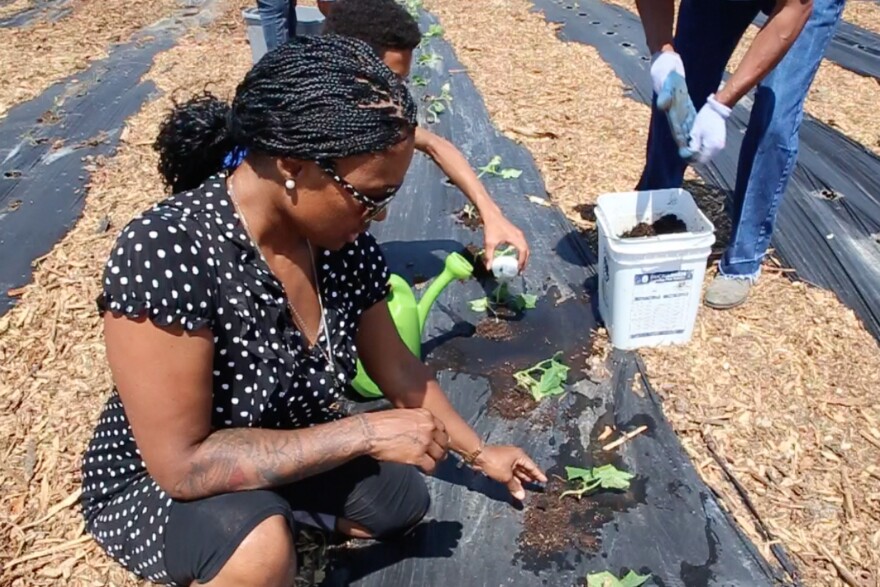This week: Slow-moving public policy spurs residents in one Indianapolis food desert to take food access into their own hands. A host of issues--including lack of beds--mean mentally ill patients wait for days in ERs before they receive treatment. And researchers think analyzing internet search data could speed up public responses to health emergencies.
This week on Side Effects:
Could a Google Search Make Communities Safer? Internet searches for certain topics--gun violence, Zika, Ebola--spike after a big event, such as a school shooting. Knowing what people click on, and when, could help public health officials understand how communities react to crises and what protective measures can be used. This week, Andrew Villegas of Side Effects reports on the "infodemiology" trend.

Mentally Ill Languish In Hospital ERs When Treatment Slots Are Slim In Massachusetts, the number of slots in inpatient psychiatric treatment centers just don't line up with the number of people who need help. Where do would-be patients go in the meantime? The answer, for some, is the emergency room. WBUR's Deborah Becker met with one mother of an addicted son who has seen the toll the wait plays on patients and families.

Solving An Indianapolis Neighborhood's Stubborn Food Problem: On the city's east side, Ilene Loper transfers buses six times to get to a food pantry twice a month--and she's not the only one. In her neighborhood, some live literally miles from the nearest grocery store. WFYI's Leigh DeNoon visits a food desert--and sees what residents are doing to help themselves while state-level policy moves slowly.
What our reporters are reading elsewhere around the web:
Organ Donation Disparities: More than half the people waiting for organ donations are people of color. And while organs can be donated across races, outcomes are better when people receive organs from donors of the same ethnicity. But as the Indianapolis Recorder reports, distrust of the medical community and pervasive myths about organ donation mean African Americans don't donate at the same rate as other races. (Indianapolis Recorder)
Ignoring mental illness in S-Town: Public radio fans devoured This American Life's spin-off podcast, S-Town. The series delved into topics as disparate poverty, global warming and the movie Brokeback Mountain. Notably absent: any acknowledgment of what many listeners recognized as a very apparent mental illness at the heart of the story. Social worker Karen Seif asks: Why did no one speak up? (WBUR)
Throwback time: Ed Yong, The Atlantic's resident expert on everything rotting and desiccated, reports on the "necrobiome"--the bacteria that eats a body after it dies. By studying the different proportions of these bacteria, scientists can pinpoint a body's time of death, an incredibly useful tool for forensic investigators.(The Atlantic)
Want to receive a weekly roundup of our favorite stories each week? Sign up for our newsletter!


